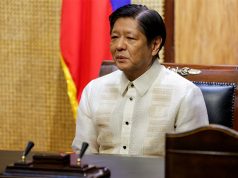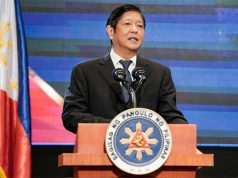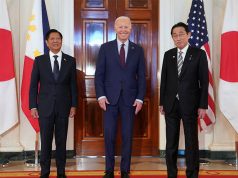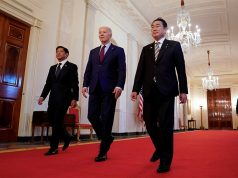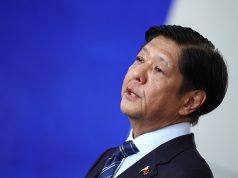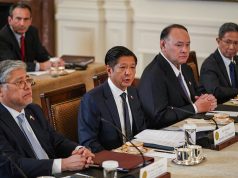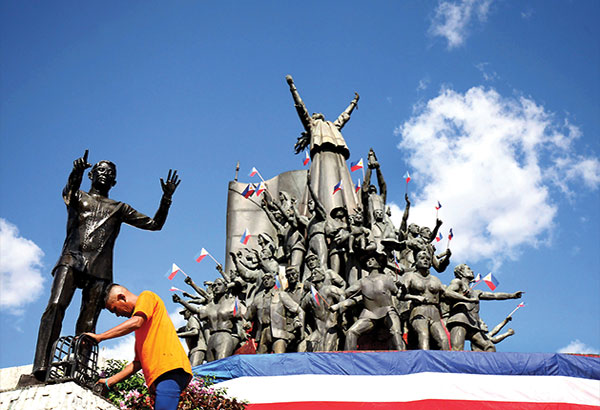
Various concerns about the timing of the declaration of February 24 as a special non-working holiday filled social media ahead of the People Power Revolution anniversary.
On February 23 evening, Malacañang released Proclamation No. 167 which stated that the celebration of the 37th EDSA Revolution anniversary “may be moved” from February 25, Saturday, to February 24, Friday.
“Provided that the historical significance of EDSA People Power Revolution Anniversary is maintained,” the proclamation of President Ferdinand Marcos Jr. reads.
It added that the move was initiated “to enable our countrymen to avail of the benefits of a longer weekend pursuant to the principle of holiday economics.”
Holiday economics refers to the movement of the observance of certain public holidays to a weekday nearest to the weekend so that the public can enjoy three rest days instead of the usual two (Saturday and Sunday).
This practice was popular during the term of former president and now Senior Deputy Speaker Gloria Macapagal Arroyo.
A reporter, who visited the Official Gazette website at 11:42 p.m. on February 23, said that the EDSA Revolution “remains a special non-working day on Saturday” following the proclamation’s release.
Other Filipinos who first learned of the proclamation also asked how the status of the actual holiday date, February 25, would be affected, given that it is a Saturday.
“How about on Saturday? It’s not clearly stated on the Proc [Proclamation],” a Twitter user said.
“Will Saturday remain as a non-working day? Please clarify,” another Pinoy tweeted.
On Friday, the Department of Labor and Employment that February 25, Saturday is an ordinary working day for those who have to render duty.
It also shared guidelines for the payment of wages for the special non-working day on February 24.
Last November, Malacañang released a new list of regular and special non-working holidays, adjusting some dates to promote the “holiday economics” through its Proclamation No. 90.
Under this proclamation, Feb. 25, 2023, a Saturday, was listed as a special non-working holiday.
Significance of February 25
February 25 was a significant date during the EDSA Revolution as this was when two inaugurations took place in 1986 — that of late former president Cory Aquino and late former president Ferdinand Marcos Sr.
This date was declared a special non-working holiday by late former president Noynoy Aquino through Proclamation 1071 under the following reasons:
- Whereas, the Edsa People Power Revolution, which restored our democratic institution and ushered in political, social and economic reforms in the country, serves as an inspiration to Filipinos everywhere as a nation and as a people;
- Whereas, the Edsa People Power Commission requested that 25 February 2016 be declared as a special (non-working) holiday throughout the country in celebration of the 30th Anniversary of the Edsa People Power Revolution;
- Whereas, it is but fitting and proper that the entire Filipino nation be given the opportunity to observe this milestone in our country’s history.
As stated in an EDSA 30 special on the Official Gazette: “The events of February 25, 1986, altered the course of our nation’s history; it showcased to the world the remarkable resolve of the Filipino people.”
“It heralded an era of peace. Over the years, we have continued to remember this momentous occasion by honoring the sacrifices of all those who fought the dictatorship,” it added.
On that day, Cory took her oath as president at Club Filipino in Greenhills, while Marcos Sr. took his oath at the Malacañang Palace and addressed Filipinos on its balcony. It was his last public address before fleeing to Hawaii.
Their oath-taking happened after the snap elections on Feb. 7, 1986, when vote tabulators walked out two days after due to what they said was a poll fraud committed to favor Marcos Sr.
Reports said that before Cory was sworn in, a proclamation signed by about 60 opposition legislators in the 190-member National Assembly was read.
It said: “We proclaim Corazon Aquino and Salvador Laurel the duly elected president and vice president respectively, entitled to the recognition, obedience and allegiance of the Philippine people.”
Meanwhile, a privately-owned station that televised Marcos Sr.’s inauguration to the public was cut off following a “heavy shooting” that happened around its site.
Declaration concerns
The timing of Marcos Jr.’s proclamation about the EDSA Revolution anniversary on the evening of February 23 drew concerns from some Pinoys who questioned how it would affect important prior commitments and other scheduled activities.
“Announcing the special non-working day the night before defeats the purpose of holiday economics (expressionless face emoji) May mga important meetings and filings kami, amp,” a lawyer tweeted.
“Nakaayos ang schedule ng lecture at quizzes ko. Nasira dahil sa kaka-announce lang na holiday,” a lecturer wrote.
“Paano sked [schedule] ko bukas,” forensic pathologist Raquel Fortun commented on Thursday with a thinking emoji in response to the proclamation.
“Holiday economics? Did anyone get to plan a vacation given how late the declaration was made? All it did was disrupt schedules, transactions, plans — which came with a cost. We’ve had 3 years of disruption. Let’s focus on order and stability,” veteran journalist Lydia Jumilla-Abalos said.
“Truly wondering how the last-minute holiday announcement affects those with scheduled commitments [and] important tasks today,” writer Elizabeth Angsioco commented.
Lawyer and educator Gideon Peña also shared information about similar circumstances for those who have deadlines on the declared special non-working holiday.
He cited the rule on the pretermission of holidays, which said:
“Where the day, or the last day, for doing any act required or permitted by law falls on a regular holiday or special day, the act may be done on the next succeeding business day.”
“This covers, subject to exceptions, gov’t [government] transactions [and] periods set by law,” Peña said.
“One of the exceptions is the filing of a criminal case involving a crime which would have [been] prescribed on a holiday. Since prescription of a crime cannot be extended, filing of a criminal complaint cannot anymore be done on the following business day,” he added.
“For ordinary and private contracts (such as payment of debt), obligations will remain due even if the last day [is] on a holiday or special day unless the contract or agreement provides otherwise,” Peña continued.
This was not the first time Marcos Jr. had declared a special non-working holiday on the night before the day itself.
It also happened in December 2022, when he declared the day after Christmas Day, December 26, a holiday to give people “the full opportunity to celebrate the holiday with their families and loved ones.”
The move surprised some Pinoys who thought of how businesses and their workers would be affected following the sudden announcement.
“Patay ang negosyo,” a Facecbook user said before.
“Lugi negosyo,” another Pinoy previously commented.
“Hay, wala [na] naman bayad,” a different online user said with a crying face emoji before.
The EDSA Revolution
The EDSA Revolution was a four-day occasion involving a series of public protests and demonstrations that culminated in a historic march along Epifanio de los Santos Avenue (EDSA), the main artery of Metro Manila.
The march was a manifestation of people’s sentiments Filipinos’ sentiments against “totalitarian rule,” according to the Official Gazette.
The totalitarian rule refers to Marcos Sr.’s dictatorship after placing the country under a nine-year martial rule from 1972 to 1981.
Human rights organization Amnesty International said the period “saw an unprecedented wave of torture, extrajudicial killings, and other serious human rights violations against peaceful activists and members of the public across the country.”
“From 1972 to 1981, some 70,000 people were imprisoned and 34,000 were tortured; over 3,200 people were killed,” it added.
Meanwhile, the historic protests began as a response to the results of the snap elections which declared Marcos Sr. the winner, according to the Commission on Elections.
On the other hand, the National Citizen’s Movement for Free Elections had declared Cory, widow of late opposition senator Ninoy Aquino, as the winner.
The protests eventually became a vigil for the public to guard the top military officials who had defected from Marcos Sr. from his “vengeful machinations.”
It then progressed to Filipinos, including nuns and priests, quietly facing off against the government’s armored tanks with linked arms, prayers, and flowers.
“Columns of armored tanks formed barricades along EDSA, with heavily armed battalions as escort,” the Gazette said.
“Thus began the banded Filipinos’ show of force — through song and slogans; through earnest extensions of friendship to hard-faced soldiers; through the flashing of the Laban sign — symbol of Cory Aquino’s campaign and of the movement that carried her; through prayers and linked arms and rosaries, human barricades and flowers,” it added.
On the last day of the revolution, Cory was sworn in as the country’s 11th and first woman president.




